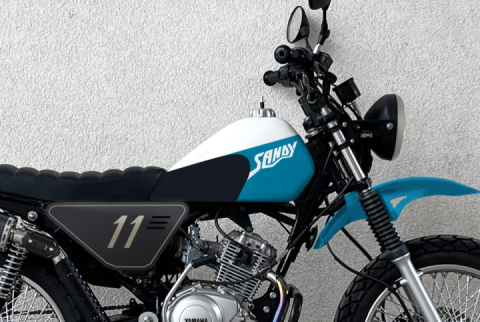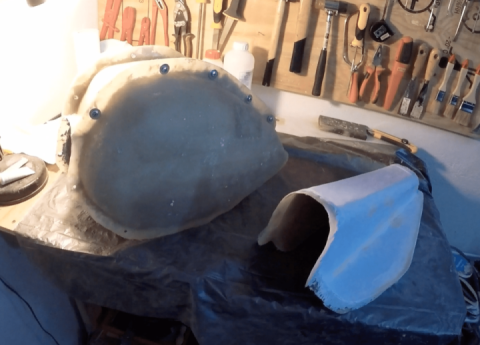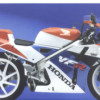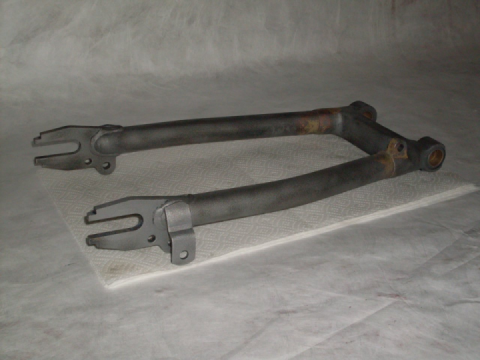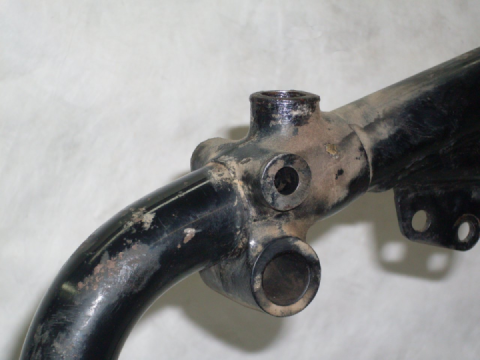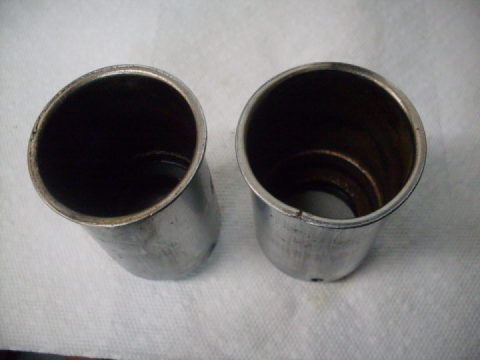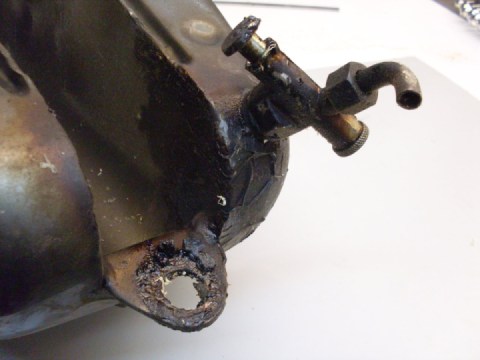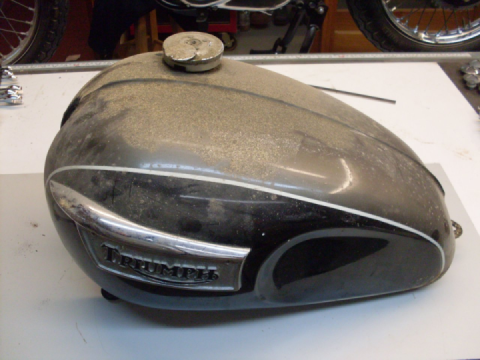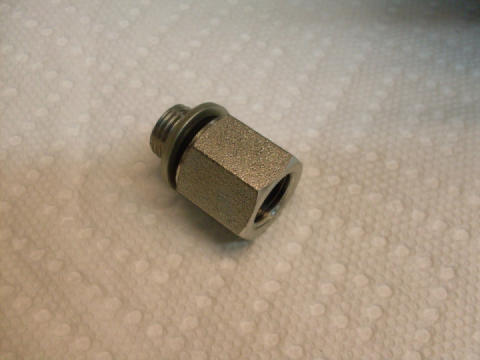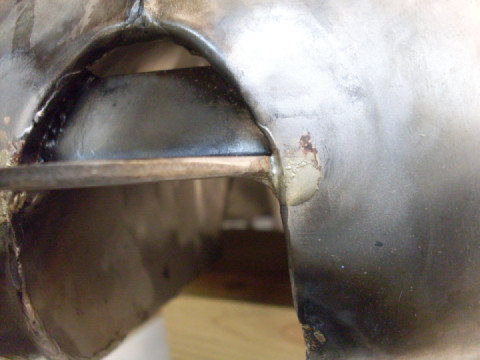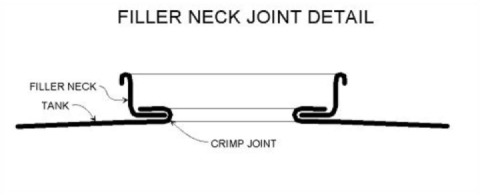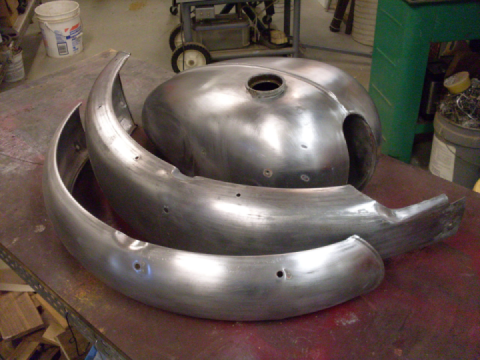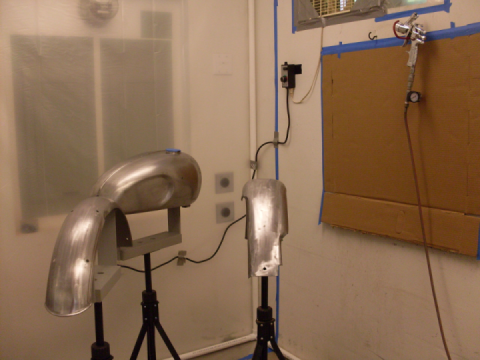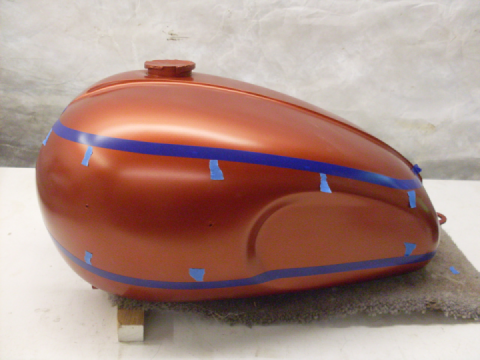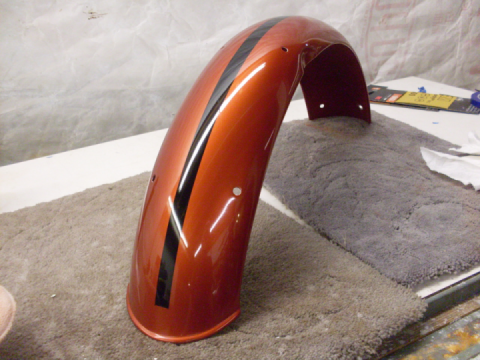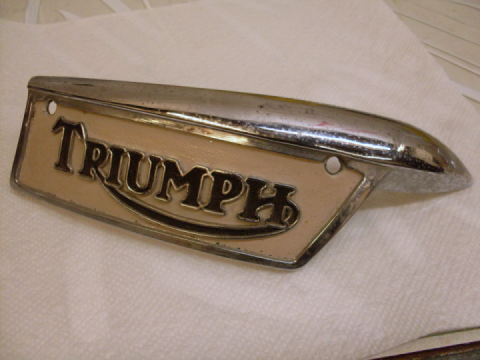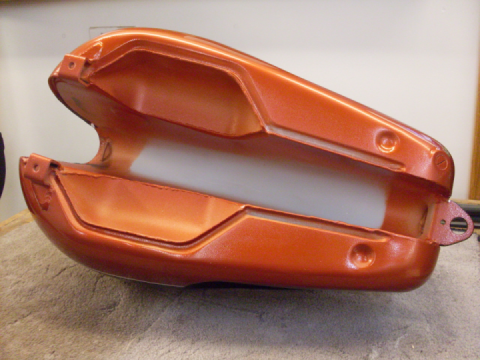Fuel Tank Part 2
Now it is just rust to deal with. There are a lot of ways to remove rust from steel. One way is acids. Strong ones like muriatic (hydrochloric), or weaker ones like phosphoric, acetic (vinegar), citric, or oxalic. Hydrochloric isn't usually the best choice since it can attack the underlying steel, and it also leaves the steel so bare that it will often immediately flash rust after the treatment. The others have varying degrees of speed and safety. I like to use phosphoric. It is easy to get, not too expensive, relatively strong, not particularly toxic, and has the advantage of leaving an insoluable coating of iron phosphate on the steel that affords some limited protection against subsequent rusting. Some soft drinks have phosphoric acid as an ingredient, and this has led some to use it for derusting. It probably does work, if you're not in a hurry.
There are also non-acidic rust removers that use complex organic molecules called chelates that can grab and encapsulate certain metal ions, like the iron in rust. These tend to be non toxic and environmentally benign. Molasses is a very old rust remover. It probably works by chelation. Commercial tank de-rust products that brag about no acid or being biodegradable are probably chelates.
Another method is electrolytic rust removal. This process is a little like reverse electroplating. It works well, and there are some who have tried it for the interior of tanks. The main difficulty with tanks, especially motorcycle tanks, is that an electrode(s) must be inserted deep into the tank, ideally so that it has line-of-sight visibility to every area needing derusting, all while guaranteeing that the electrodes(s) doesn't touch the tank.
There is also pure mechanical rust removal using abrasives. For the inside of a tank that you can't crawl into, this would usually mean some kind of tumbling or vibratory action using a loose abrasive media inside.
So I made up maybe a gallon of phosphoric acid solution and put it in the tank. I decided to add a little abrasive action to speed up the process. I've used gravel (like on my oil tank). Small drywall screws or other metal hardware is also popluar. On this tank, I used a couple of pounds of a media made for the purpose. It is little abrasive-loaded plastic tetrahedrons. 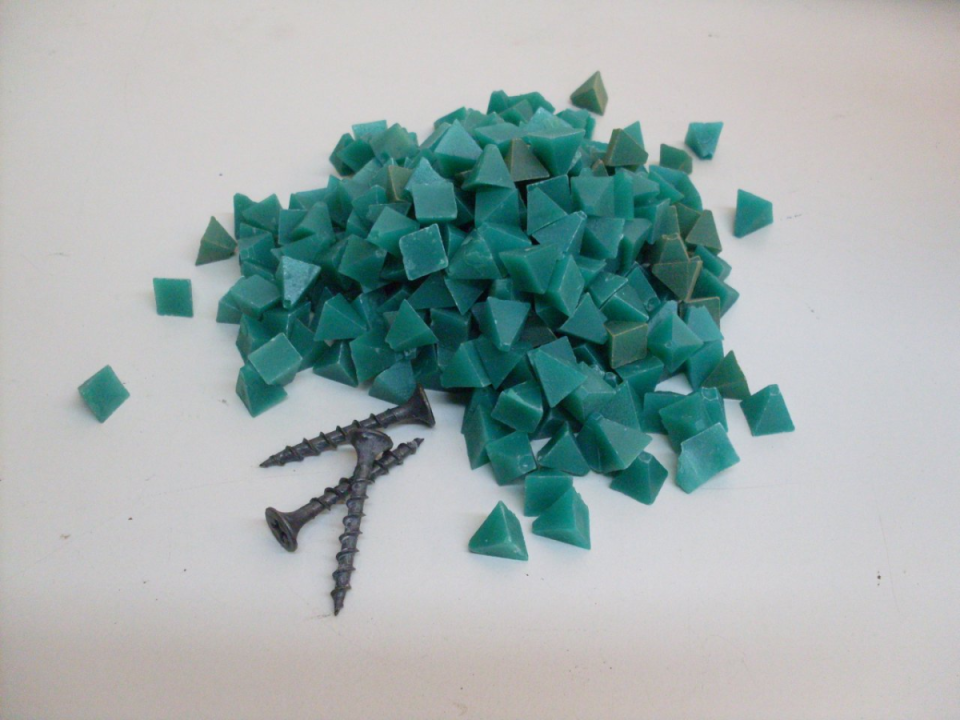
After maybe 30 minutes with acid and agitation, the tank still had a little rust on the bottom in the rear of the tank, so I repeated the phosphoric process. I emptied the acid and media from the tank, rinsed it several times with water, and then rinsed with alcohol to scavenge the leftover water and get it to dry quicker.
Now that I knew I could clean up the inside of the tank, at least visually, I turned to the outside. I have a small blast cabinet, but the tank just about fills it up, leaving little room to maneuver the gun. For most of the tank, I used a chemical stripper to remove most of the paint, then sanded it.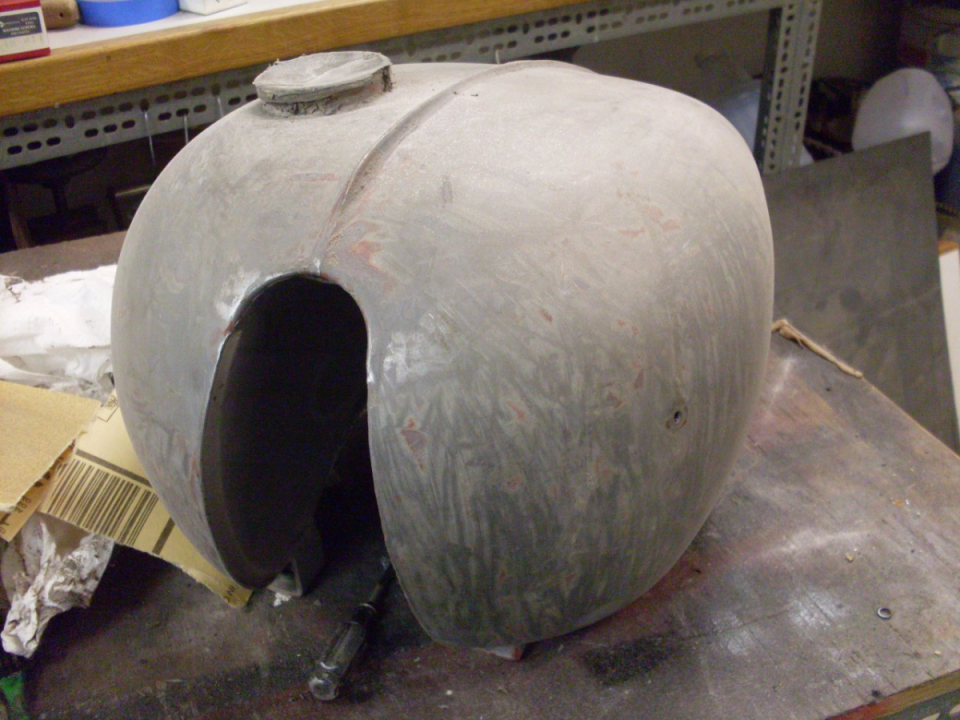
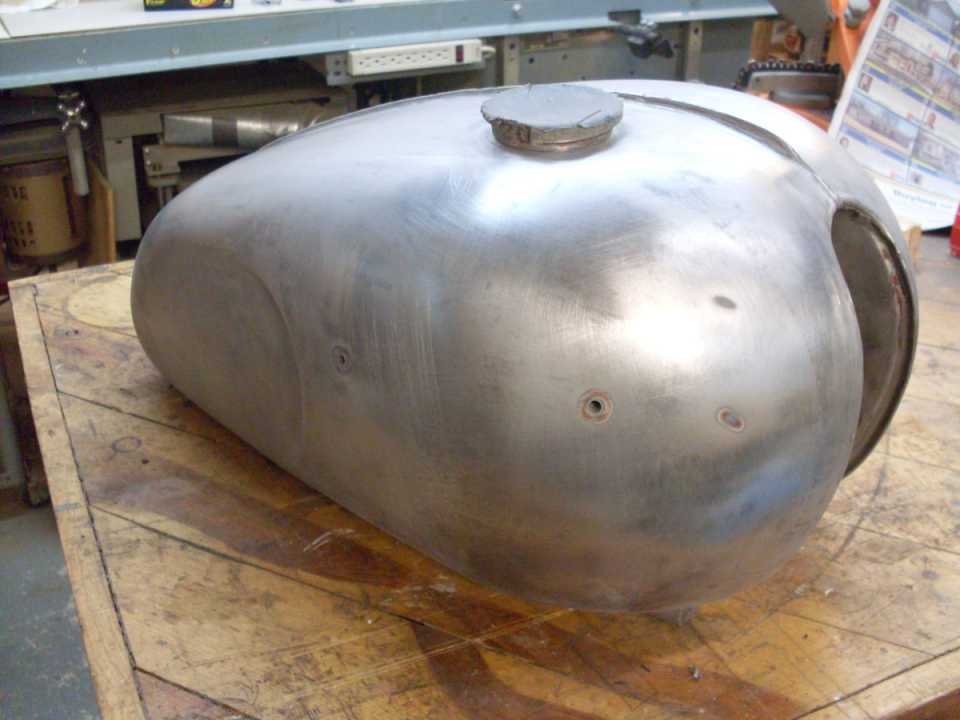
For some of the hard to reach places, I made the blast cabinet work: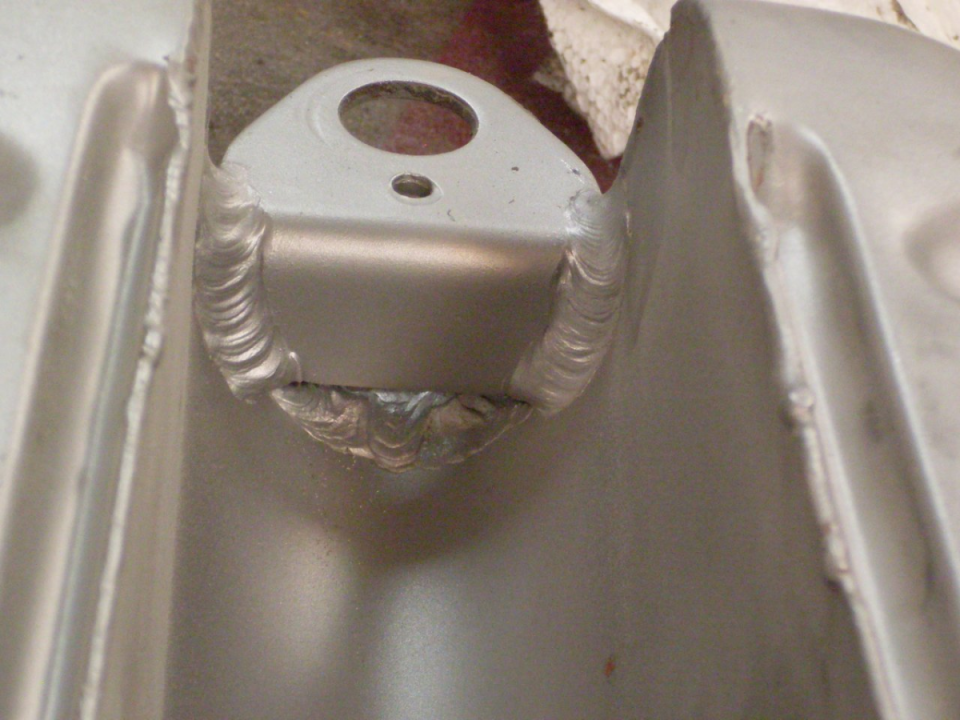
At this point, many people would automatically apply some sort of tank sealer to the inside of the tank. While I understand their motivation, I believe that unless a tank is leaking, sealers are unnecessary, and maybe even unwise. Sealing systems do sometimes fail, possibly causing new and worse problems. Chemical sealing systems have their place, but are better used as a last measure to save an otherwise unusable tank. Even if a tank is leaking, there may be better ways to fix it.
So I needed to determine if my tank was fuel tight. I was fairly certain that there had not been significant rust damage to the inside of the tank, but leaks can come from other causes.
I decided to do a leak-down test on the tank. This is a test where the tank is pressurized and left to see how long it will hold the pressure. I found a pipe plug of the right size to seal the filler neck: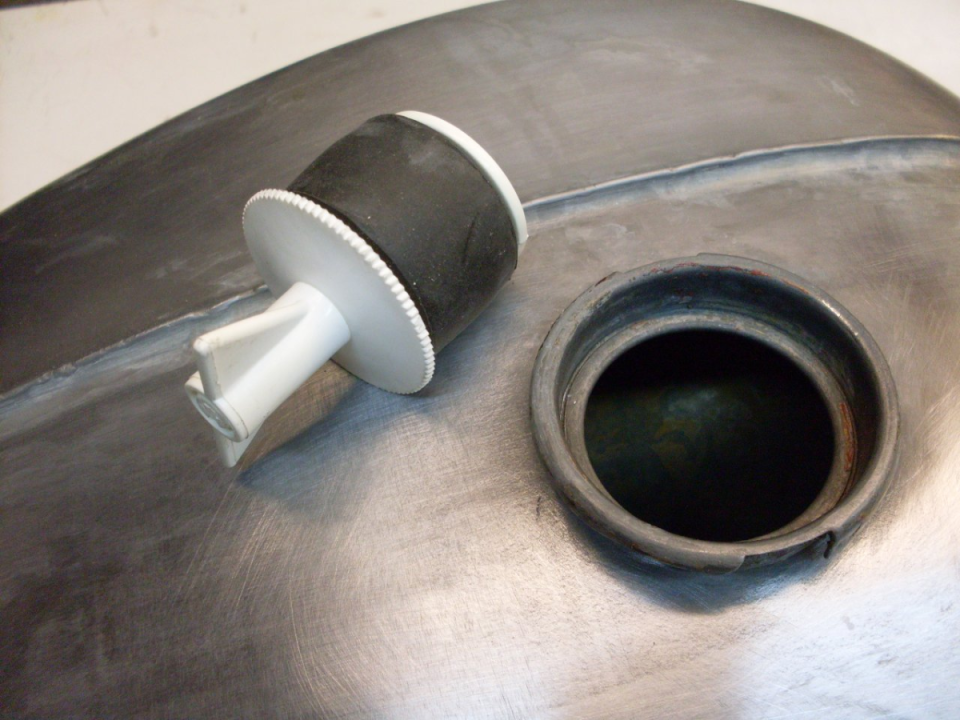
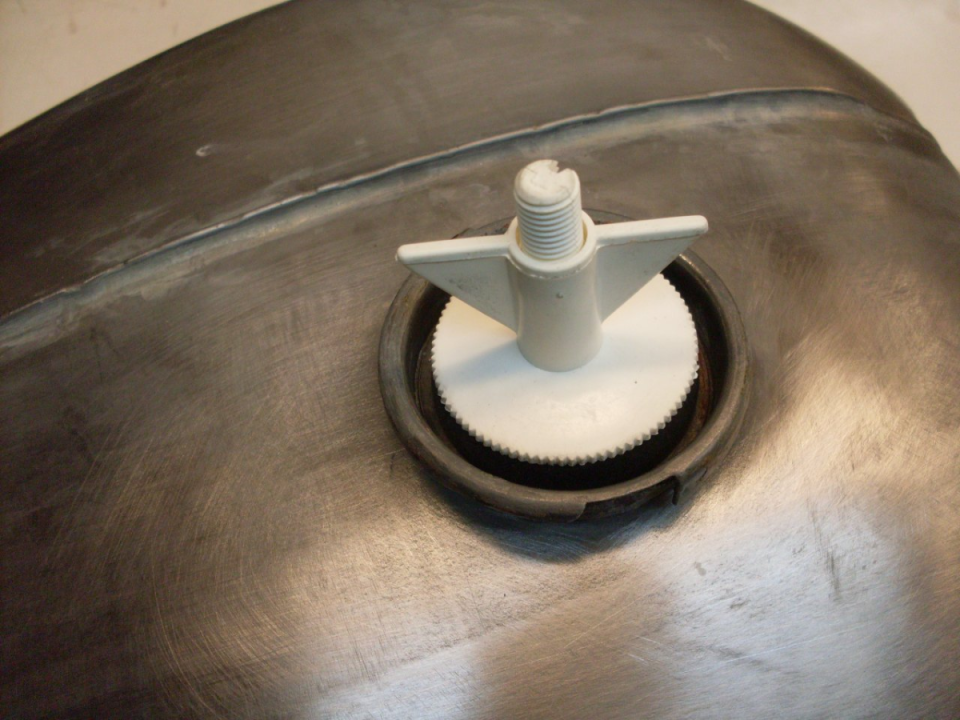
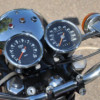
 Follow
1.3K
Follow
1.3K



